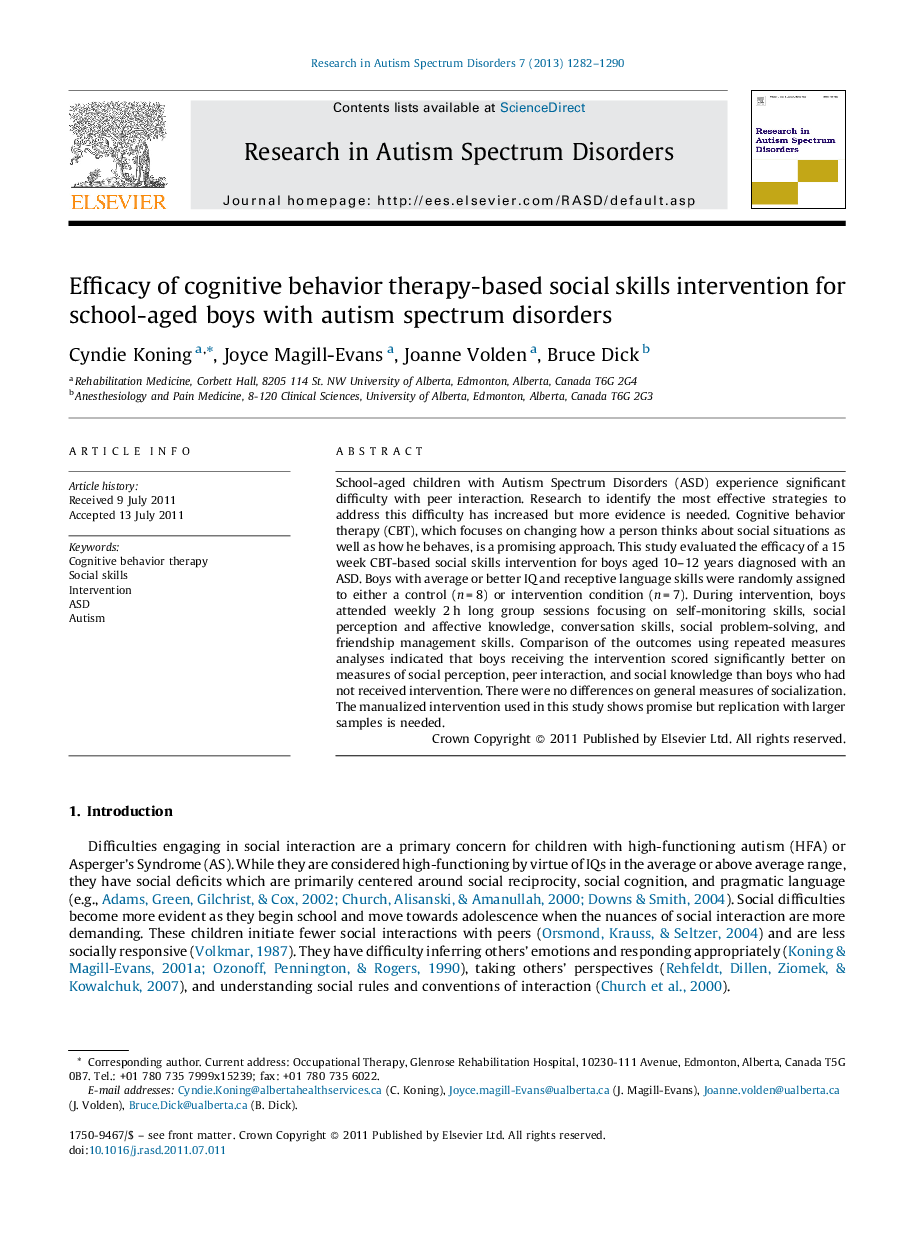| Article ID | Journal | Published Year | Pages | File Type |
|---|---|---|---|---|
| 370243 | Research in Autism Spectrum Disorders | 2013 | 9 Pages |
School-aged children with Autism Spectrum Disorders (ASD) experience significant difficulty with peer interaction. Research to identify the most effective strategies to address this difficulty has increased but more evidence is needed. Cognitive behavior therapy (CBT), which focuses on changing how a person thinks about social situations as well as how he behaves, is a promising approach. This study evaluated the efficacy of a 15 week CBT-based social skills intervention for boys aged 10–12 years diagnosed with an ASD. Boys with average or better IQ and receptive language skills were randomly assigned to either a control (n = 8) or intervention condition (n = 7). During intervention, boys attended weekly 2 h long group sessions focusing on self-monitoring skills, social perception and affective knowledge, conversation skills, social problem-solving, and friendship management skills. Comparison of the outcomes using repeated measures analyses indicated that boys receiving the intervention scored significantly better on measures of social perception, peer interaction, and social knowledge than boys who had not received intervention. There were no differences on general measures of socialization. The manualized intervention used in this study shows promise but replication with larger samples is needed.
